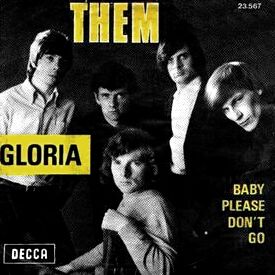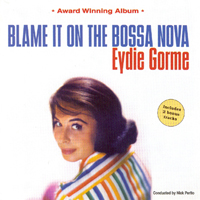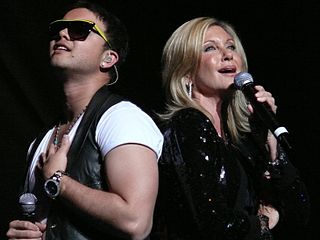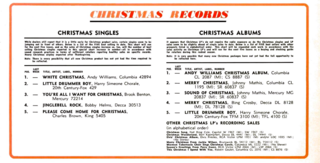Related Research Articles
Bertrand Russell Berns, also known as Bert Russell and (occasionally) Russell Byrd, was an American songwriter and record producer of the 1960s. His songwriting credits include "Twist and Shout", "Piece of My Heart", "Here Comes the Night", "Hang on Sloopy", "Cry to Me" and "Everybody Needs Somebody to Love", and his productions include "Baby, Please Don't Go", "Brown Eyed Girl" and "Under the Boardwalk".

Diane Eve Warren is an American songwriter. She has won an Academy Honorary Award, Grammy Award, an Emmy Award, two Golden Globe Awards and three consecutive Billboard Music Awards for Songwriter of the Year from 1997 to 1999. She first gained recognition for her work on DeBarge's 1985 single "Rhythm of the Night". By the late 1980s, she joined the record label EMI, where she became the first songwriter in the history of Billboard magazine to have written seven hit songs, all of which by different artists, prompting EMI's UK Chairman Peter Reichardt to call her "the most important songwriter in the world".

"Come See About Me" is a 1964 song recorded by the Supremes for the Motown label. The track opens with a fade-in, marking one of the first times the technique had been used on a studio recording.

"My Girl" is a soul music song recorded by the Temptations for the Gordy (Motown) record label. Written and produced by the Miracles members Smokey Robinson and Ronald White, it became the Temptations' first U.S. number 1 single, and is currently their signature song. Robinson's inspiration for writing "My Girl" was his wife, Miracles member Claudette Rogers Robinson. The song was included on the Temptations 1965 album The Temptations Sing Smokey. In 2017, the song was selected for preservation in the National Recording Registry by the Library of Congress as being "culturally, historically, or artistically significant".

"You Don't Know Me" is a song written by Eddy Arnold and Cindy Walker in 1955. "You Don't Know Me" was first recorded by Arnold that year and released as a single on April 21, 1956, on RCA Victor. The best-selling version of the song is by Ray Charles, who took it to number 2 on the Billboard Hot 100 chart in 1962, after releasing the song on his number 1 album Modern Sounds in Country and Western Music. The first version of the song to make the Billboard charts was by Jerry Vale in 1956, peaking at number 14 on the pop chart. Arnold's version charted two months later, released as an RCA Victor single, 47–6502, backed with "The Rockin' Mockin' Bird", which reached number 10 on the Billboard country chart. Cash Box magazine, which combined all best-selling versions at one position, included a version by Carmen McRae that never appeared in the Billboard Top 100 Sides listing.

"Gloria" is a rock song written by Northern Irish singer-songwriter Van Morrison, and originally recorded by Morrison's band Them in 1964. It was released as the B-side of "Baby, Please Don't Go". The song became a garage rock staple and a part of many rock bands' repertoires.

"Heat Wave" is a 1963 song written by the Holland–Dozier–Holland songwriting team. It was first made popular by the Motown vocal group Martha and the Vandellas. Released as a 45 rpm single on July 9, 1963, on the Motown subsidiary Gordy label, it hit number one on the Billboard Hot R&B chart—where it stayed for four weeks—and peaking at number 4 on the Billboard Hot 100.

"I Only Want to Be with You" is a song written by Mike Hawker and Ivor Raymonde. The debut solo single released by British singer Dusty Springfield under her long-time producer Johnny Franz, "I Only Want to Be with You" peaked at number 4 on the UK Singles chart in January 1964.

"Big Girls Don't Cry" (also known as "Big Girls Don't Cry (Personal)") is a song by American singer-songwriter Fergie from her debut studio album, The Dutchess (2006). It was written by Fergie and Toby Gad while the production was helmed by will.i.am. The song was released as the fourth single from the album on May 22, 2007. "Big Girls Don't Cry" deviates from the hip hop and urban music of Fergie's previous singles and opts for a more simplistic pop ballad sound that incorporates acoustic elements. It features credits from about thirty instrumentalists, many of which play the violins, violas and celli on the track. Lyrically, the song talks about moving on from the pain of a breakup.

"Blame It on the Bossa Nova" is a song written by Cynthia Weil (lyrics) and Barry Mann which was a 1963 hit single for Eydie Gormé, reaching number 7 on the Hot 100 in Billboard in March 1963. The song also peaked at number 32 in the UK, whereas "Yes, My Darling Daughter" became the biggest hit for Eydie there, reaching number 10.
Diane Peoples Waldrop was an American pop and rock and roll singer of the early 1960s. Ray was born in Gastonia, North Carolina. Her musical career began after she won a talent contest on Big WAYS radio in Charlotte NC. She is best known for her hit single, "Please Don't Talk to the Lifeguard", which reached #31 on the Billboard Hot 100 chart in 1963. Without any further chart presence, Ray remains a one-hit wonder.

This article contains information about albums and singles released by the American musical duo Ike & Tina Turner.

"You Don't Own Me" is a pop song written by Philadelphia songwriters John Madara and David White, and was recorded by Lesley Gore in 1963, when she was 17 years old. The song was Gore's second most successful recording and her last top-ten single. Gore herself considered it to be her signature song claiming “I just can’t find anything stronger to be honest with you, it’s a song that just grows every time you do it.”
"(You Don't Know) How Glad I Am" is a song written by Jimmy Williams and Larry Harrison. In the US, its best-known recorded version is that by Nancy Wilson, a hit single for her, in the summer of 1964.
Mary Susan Applegate is an American songwriter, poet and lyricist who lives in Frankfurt am Main, Germany.

"Dumb Head" is a song recorded by American girl-pop performer Ginny Arnell. It was written by David Hess and Camille Monte, arranged by Al Gorgoni, produced by Jim Vienneau, and released in November 1963. The single was a minor hit, entering the Billboard Hot 100, and was featured on her debut full-length LP, Meet Ginny Arnell. British girl group The Sharades later recorded the song.

The singles discography of British-Australian recording artist Olivia Newton-John consists of 69 singles, three as a featured artist and 25 promotional recordings. She was a four-time Grammy award winner who amassed five number-one and ten other Top Ten Billboard Hot 100 singles, seven Top Ten Billboard Hot Country singles, and two number-one Billboard 200 solo albums. Ten of her singles topped Billboard's adult contemporary music singles chart. Eleven of her singles have been certified gold by the RIAA. She sold an estimated 100 million records worldwide, making her one of the world's best-selling artists of all time.
"Don't Cry, Joni" is a song written by American country music artist Conway Twitty. He recorded it with his daughter Joni Lee and released it in August 1975 as the single from the album The High Priest of Country Music. The recording was a pop hit peaking at number 63 on the US Billboard Hot 100 chart and number 4 on the Billboard Country Singles chart.

"We Don't Talk About Bruno" is a song from Disney's 2021 animated musical film Encanto, with music and lyrics written by Lin-Manuel Miranda. It was released by Walt Disney Records as part of the film's soundtrack on November 19, 2021. The song is an ensemble number performed by some of the film's voice cast members: mainly Carolina Gaitán, Mauro Castillo, Adassa, Rhenzy Feliz, Diane Guerrero and Stephanie Beatriz, and a few others in minor roles. A viral sensation, "We Don't Talk About Bruno" has been described as one of the best Disney songs and the studio's biggest crossover success.

Billboard magazine only charted Christmas singles and albums along with the other popular non-holiday records until the 1958 holiday season when they published their first section that surveys only Christmas music.
References
- 1 2 "Song overview". Allmusic. RhythmOne. Retrieved 24 December 2016.
- ↑ "Diane Ray – The Exciting Years". Discogs. 1964. Retrieved 24 December 2016.
- 1 2 3 4 "Diane Renay US chart history". Billboard. Retrieved 24 December 2016.
- ↑ "Hot 100 from August 3, 1963". Billboard. Retrieved 24 December 2016.
- ↑ "Diane Ray Discography". Discogs. Retrieved 24 December 2016.